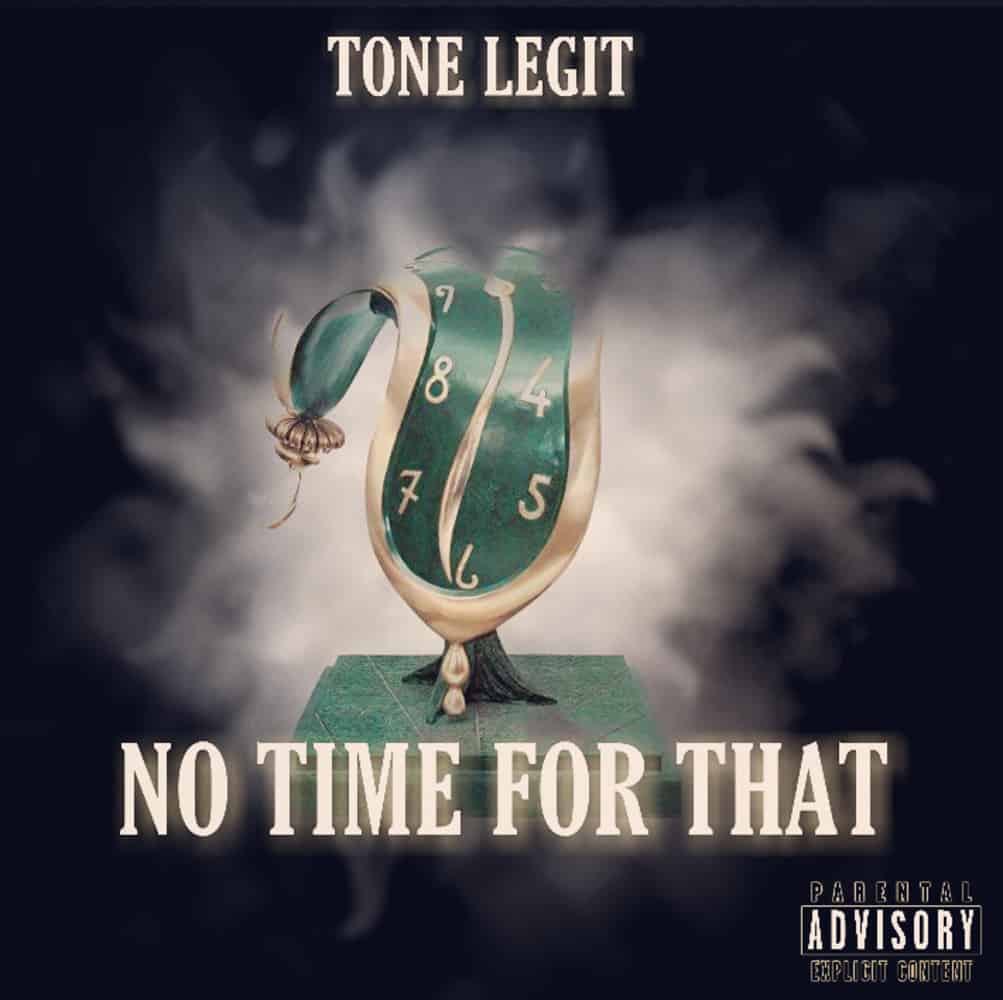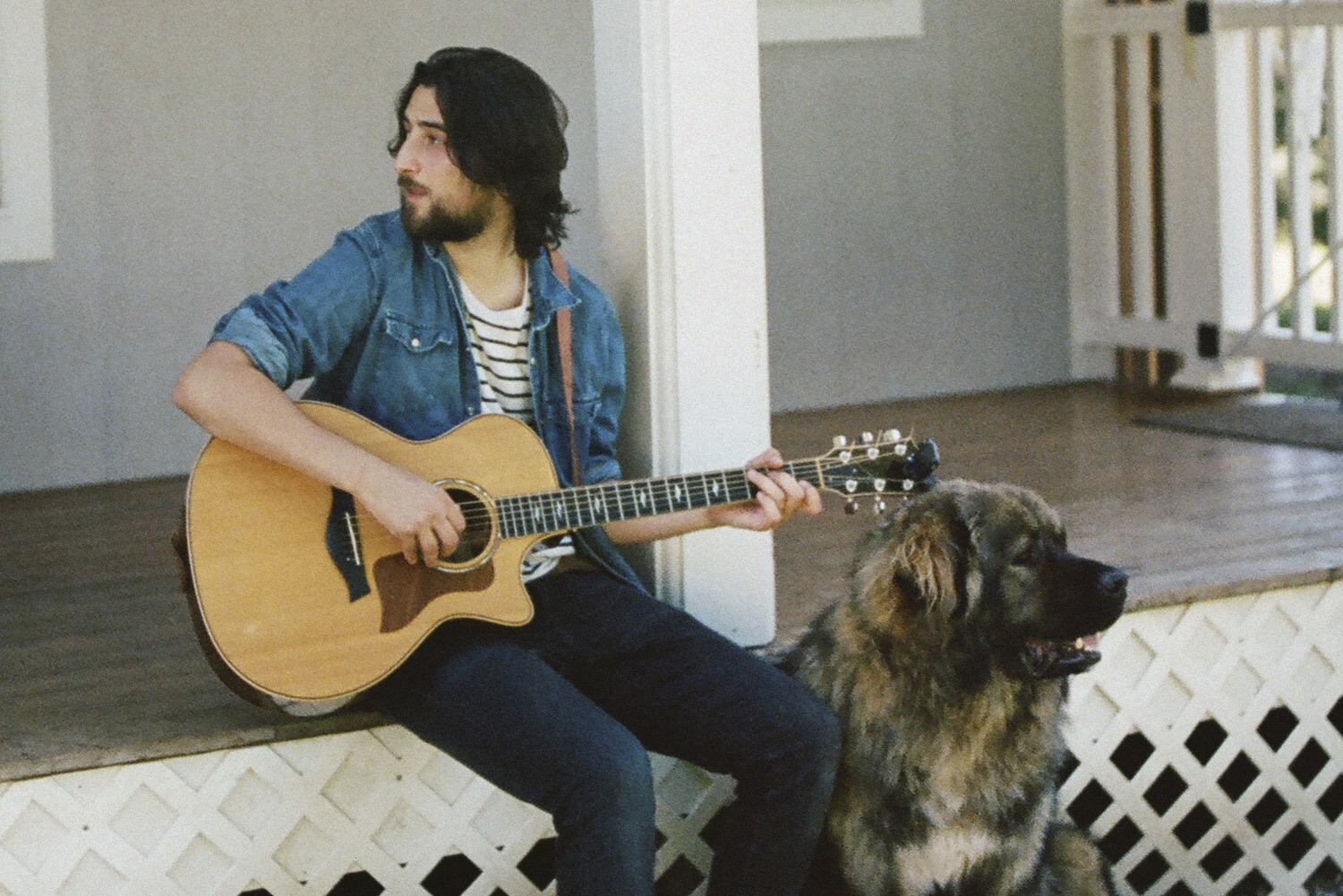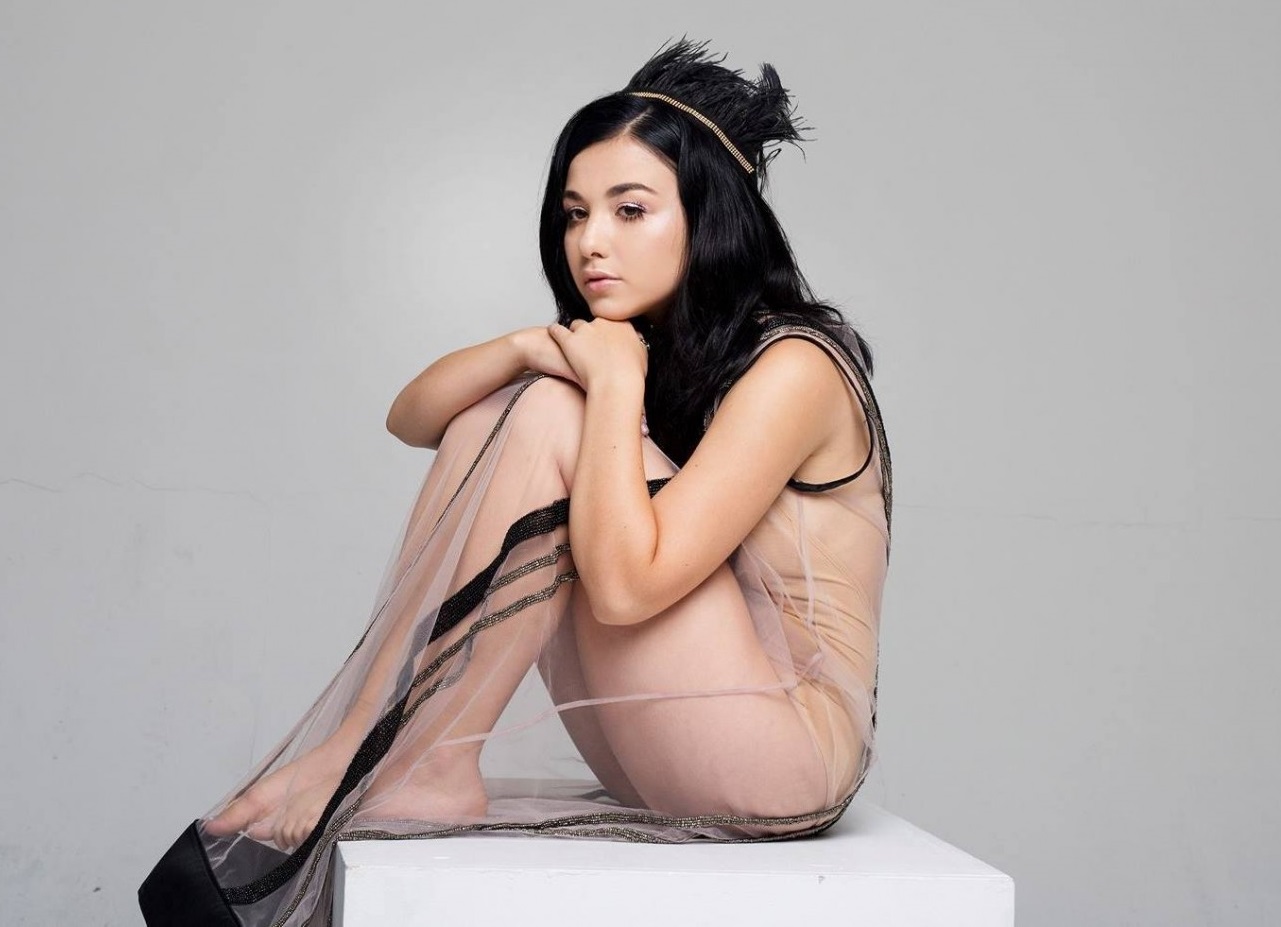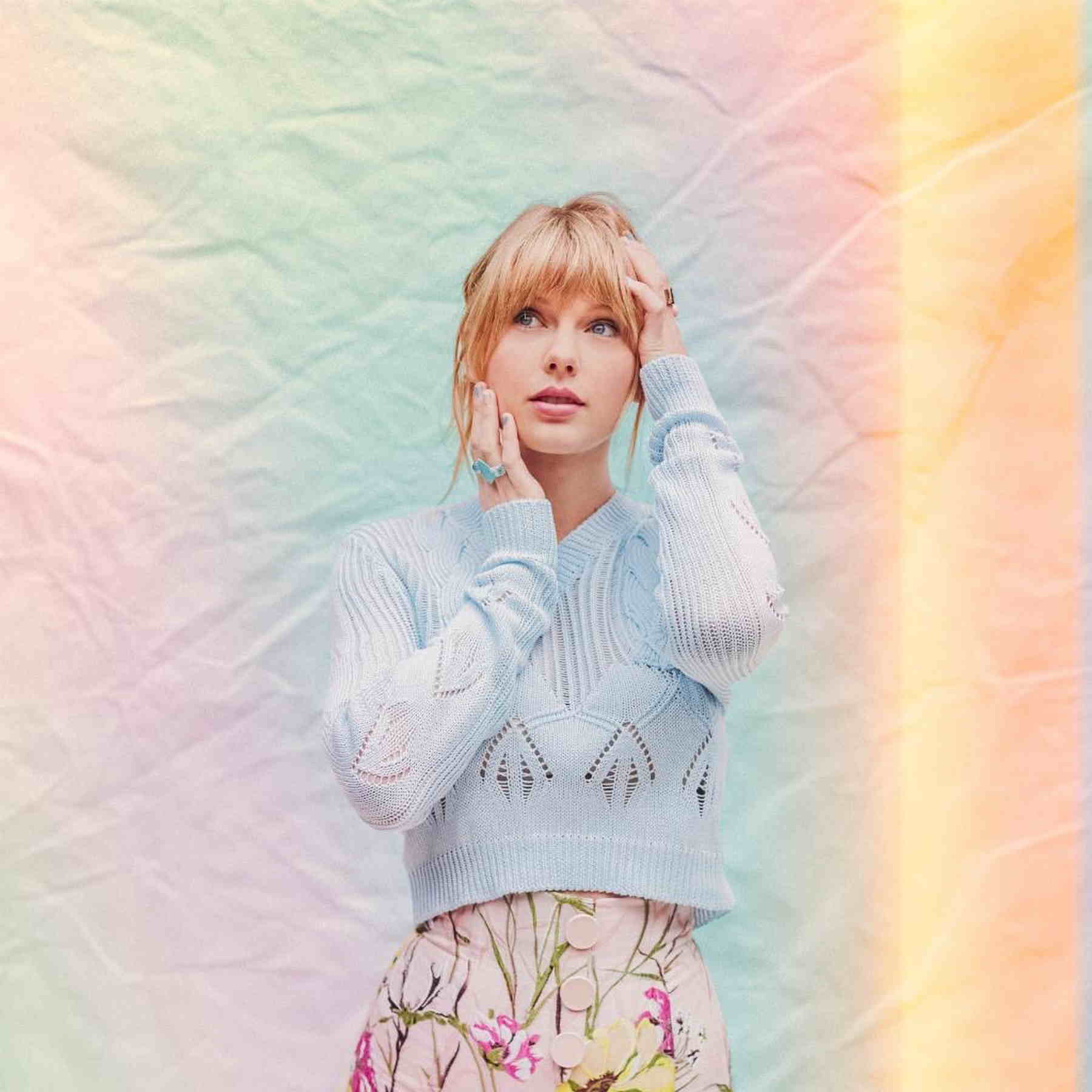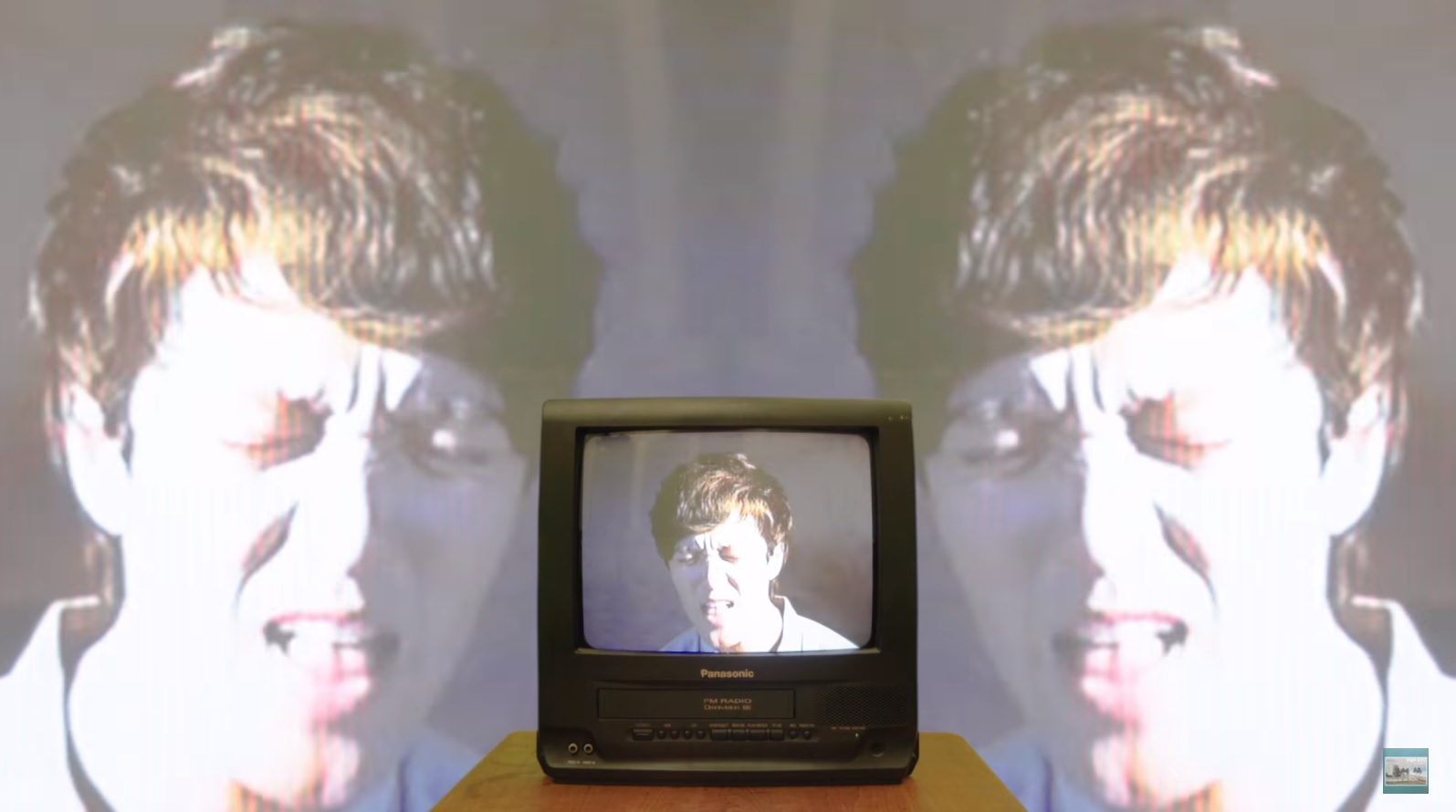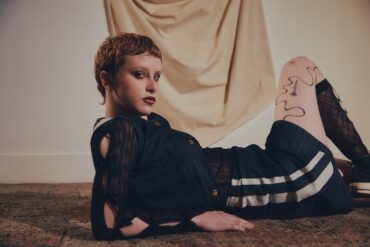Singer/songwriter Noah Kahan opens up about his big folk pivot, his third album ‘Stick Season,’ embracing his New England roots, and why he’s happier now than he’s ever been.
for fans of Gregory Alan Isakov, Mt. Joy, Lord Huron, Leif Vollebekk
Stream: ‘Stick Season’ – Noah Kahan
Noah Kahan is living his best life, but as with most good things, it took quite a lot of reckoning to get there.
It’s been six long years now since the Vermont native first captured our ears and hearts with such achingly candid outpourings as “Young Blood” and “Hurt Somebody” – tracks that, early on, had us writing things like great songwriters make great songs. “What makes him stand out is his incredible delivery: His ability to weave a story through song, teasing powerful emotions out of unsuspecting listeners like a magician pulling rabbits from a hat,” Atwood Magazine wrote in 2018.
Signing a major label record deal and releasing his debut EP at 21, Kahan’s star was already rising fast; a collaboration with Julia Michaels sent that burgeoning career into overdrive, and he never really slowed down. 2019’s debut LP Busyhead delivered “an intense outpouring of emotions through breathtaking melodies and equally moving lyrics,” 2020’s acoustic EP Cape Elizabeth presented him in a raw, intimate, and unplugged pandemic-inspired setting, and 2022’s I Was / I Am found Kahan reckoning through moments of intense personal growth and unyielding self-reflection with some of his catchiest songwriting yet.
But keeping active and being happy are two entirely separate things.
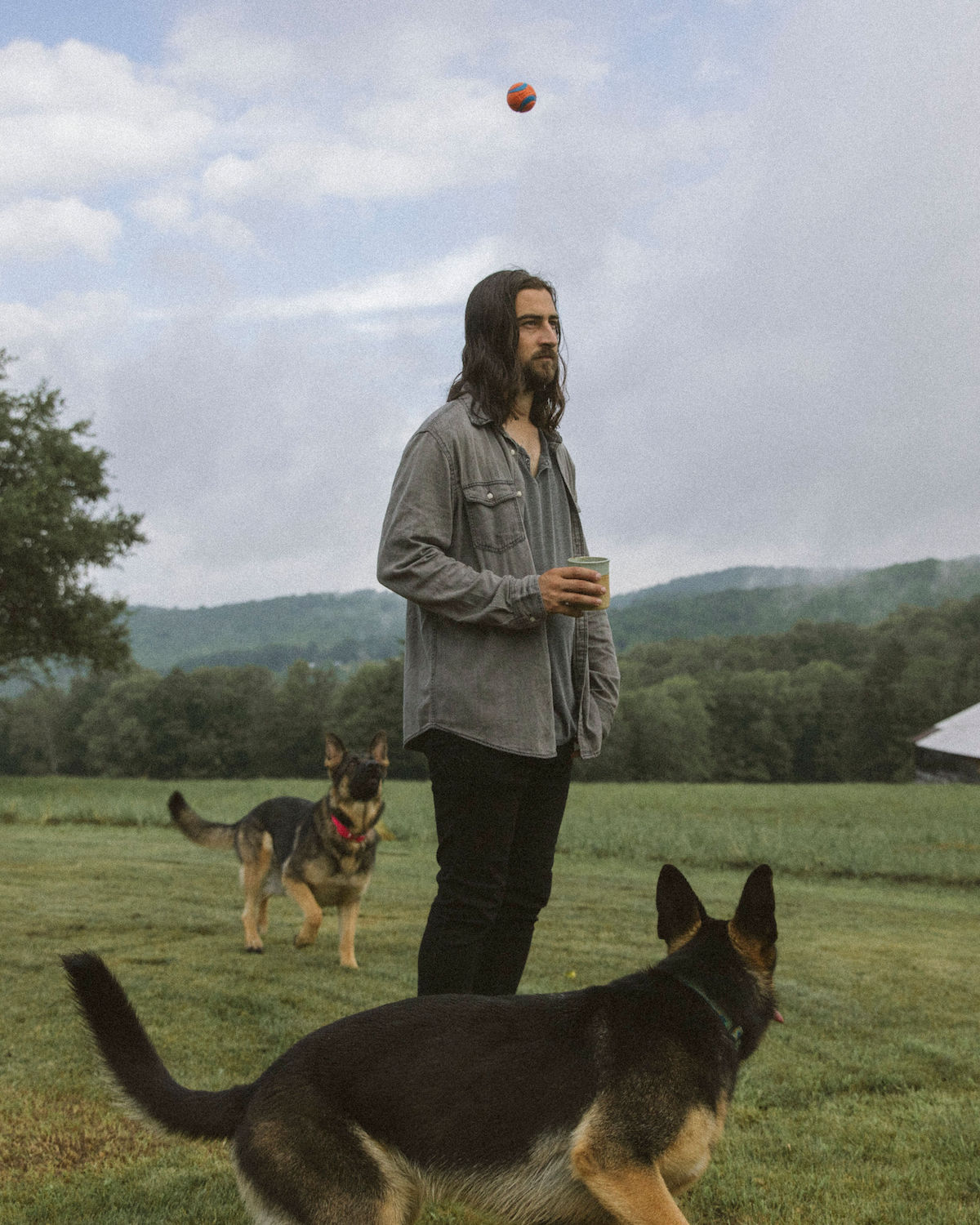
“I realized that I wasn’t finding happiness or creative fulfillment in trying to be a star and trying to be relevant,” Kahan shares. “I was putting that pressure on myself my entire life, just trying to do what I thought I was supposed to do. And it wasn’t making me happy – frankly, I wasn’t happy… I just started to kind of be focusing so much more on the success of the song than I was about writing the song. It took me a while to realize it, but when I did, I was like, ‘I need to change this,’ because it wasn’t sustainable for me.”
“And what made me happy was writing these songs and making this music, this stuff I’ve been listening to my whole life. I was always scared of doing it, ’cause I felt like I was stuck in this one path, or that I was in this path and I couldn’t find my way out of it. So I started to write these songs and opened my mind up to what actually made me happy in music, which is telling stories and speaking about this place I love and have such an interesting relationship with, which is Vermont.”
“I had this thing that was kinda making me happy and breathing new creativity into my work, and I just approached that with intent and the intent of making an album and whatever happens, happens. I have to do what’s gonna make me feel happy again.”
Liberal rednecks get drunk on a dirt road
Attention deficit kids in their gym clothes
Paper bags drift wherever the wind blows
And mine’s full of receipts
Ooh, this town’s for the record now
The intersection got a Target
And they’re calling it downtown
You and all of your new perspective now
Wish I could shut it in a closet
And drag you back down
– “New Perspective,” Noah Kahan
Having made his mark as a pop songwriter with bold hooks and catchy choruses, switching gears to a more storytelling, folk-forward sound was a big pivot for Kahan – but putting his health and happiness first wound up being the best decision he could have ever made. Released in October 14, 2022 via Republic Records, Stick Season sees Kahan at his most vulnerable, his most intimate, and his most authentic. “This album is for the folks who stuck around, out of choice or out of responsibility,” he shared the day of its release. “This album is for the restless dreamers, creating universes in their heads. I hope these stories mean to you what they do to me.”
All I care about now is being proud of myself and being proud of what I’m doing, because I spent so much time hating it.
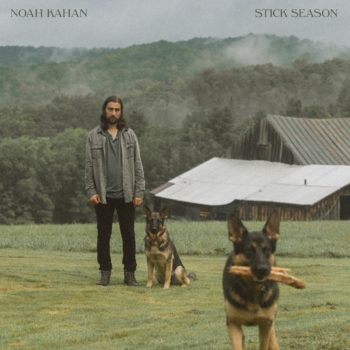
By all intents and purposes, Stick Season has been a resounding success and Kahan’s most impactful release to date. Propelled by breakout title track (which hit #1 on the AAA Radio Chart), Kahan’s third LP debuted at #14 on the Billboard 200 Chart, #4 on Billboard’s Top Alternative Albums Chart, #5 on Billboard’s Top Rock Albums Chart, and #5 on Billboard’s Top Rock & Alternative Albums Chart. The album also hit #6 on Spotify’s Weekly Top Albums USA Chart, and six of its songs landed on Spotify’s Viral 100 Chart – which, as of this writing, is the most of any artist on the chart.
And Kahan did all this by rejecting the “tried and true” and following his heart.
And I love Vermont,
but it’s the season of the sticks
And I saw your mom, she forgot that I existed
And it’s half my fault,
but I just like to play the victim
I’ll drink alcohol ’til my friends
come home for Christmas
And I’ll dream each night
of some version of you
That I might not have, but I did not lose
Now you’re tire tracks and one pair of shoes
And I’m split in half, but that’ll have to do
– “Stick Season,” Noah Kahan
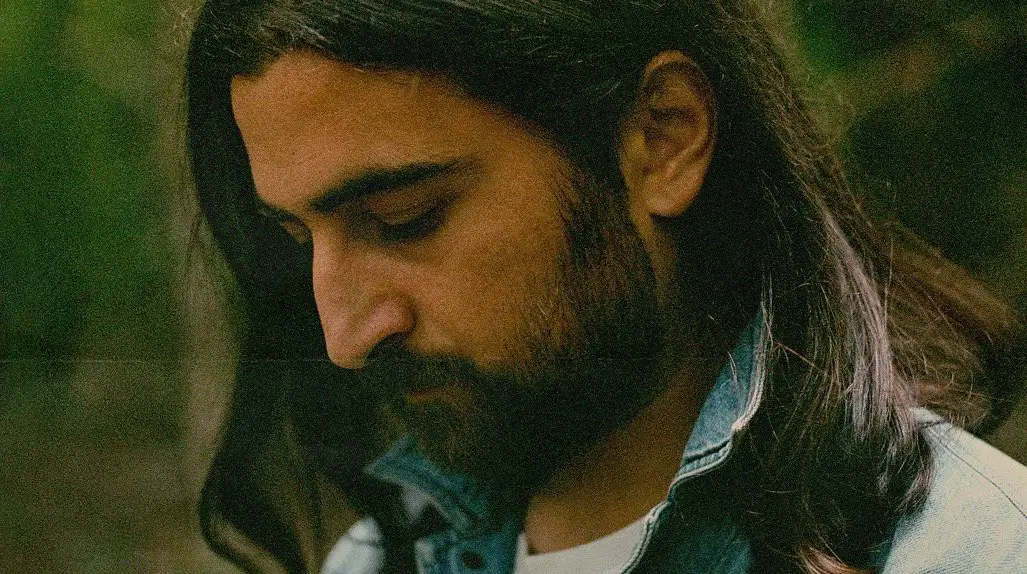
For Kahan, Stick Season is truly a rebirth for his artistry.
“I feel like it’s a reintroduction,” he says. “I have fans that have known me forever and have listened to my music forever, but I think there’s gonna be some people that are hearing the music and not connecting it to my older music, which I really like, ’cause I like the idea of being able to grow and evolve… I don’t think I’ve gone through a period of complete tragedy, having to start from the ground up, but I was going down a road that I don’t think was gonna lead to a lot of happiness. And so, I’m really pumped to be able to have the chance to kind of refine myself musically.”
That refinement sees Kahan embracing his New English roots while diving deeper into himself than ever before, singing about his home(s), his family and friends, his mental health, and all the quirks and perks of his Vermont surroundings. Even the album title is a hyperlocal reference.
“Stick Season is a colloquialism in Vermont and greater New England, about that time of the year where it’s between the peak foliage and the first snow, and there’s all the leaves are off the trees and it’s kind of a depressing time of transition,” Kahan explains. “And it’s a term that I felt like was really cool to navigate in the frame of a relationship, as well as in the frame of where I grew up in New Hampshire and Vermont, the idea that things are hard and ugly and eventually, the beauty will come, winter will come and spring will come, but there’s that time that you have to get through.”
Breathin’ in, breathin’ out
How you been? Settled down?
You feelin’ right? Feelin’ proud?
How are your kids? Where are they now?
You build a boat, you build a life
You lose your friends, you lose your wife
You settle in to routine
Where are you? What does it mean?
If I get too close and I’m not how you hoped
Forgive my northern attitude,
oh, I was raised out in the cold
If the sun don’t rise ’til the summertime
Forgive my northern attitude,
oh, I was raised on little light
– “Northern Attitude,” Noah Kahan
“What I was doing was making a record about Vermont and New England, and what it’s like to be in a small town, what that means to how you approach life and relationships, and what that means in terms of your love for it and your disdain for it at the same time. This record came about while I was almost done with my second album – I had started writing these little folk songs just for myself. I’d always grown up writing these little tunes and listening to folk music, and listening to great storytellers, like Paul Simon and Counting Crows and Cat Stevens. As I kept doing that, I realized the songs are kinda forming a theme. I had been in Vermont for about a year-and-a-half through the pandemic, and had grown up in Hanover, New Hampshire and Strafford, Vermont, so I was writing about my experiences and re-evaluating my perspective on this place that I’d spent so much of my life… As I got more serious in writing them, I started to realize that I was making an album, and so it became Stick Season.”
Kahan does worry about having perhaps pigeonholed himself as Mr. New England, but he’s also happier than he’s ever been, living in Massachusetts (when he’s not on tour) and deepening his New England roots. He’s found happiness in being himself, embracing his home, and accepting who he is at heart.
“There’s a real draw to this place that I have never been able to escape,” he shares. “Wherever I go, I’m always coming back home. Until I made the decision to live in Boston, I didn’t realize that this is where I feel like I belong. I feel safe here. I just feel understood in New England; I value my family and my home so much, that I need to be close to it.”
“And I kind of like the separation I get from the music industry a little bit.”
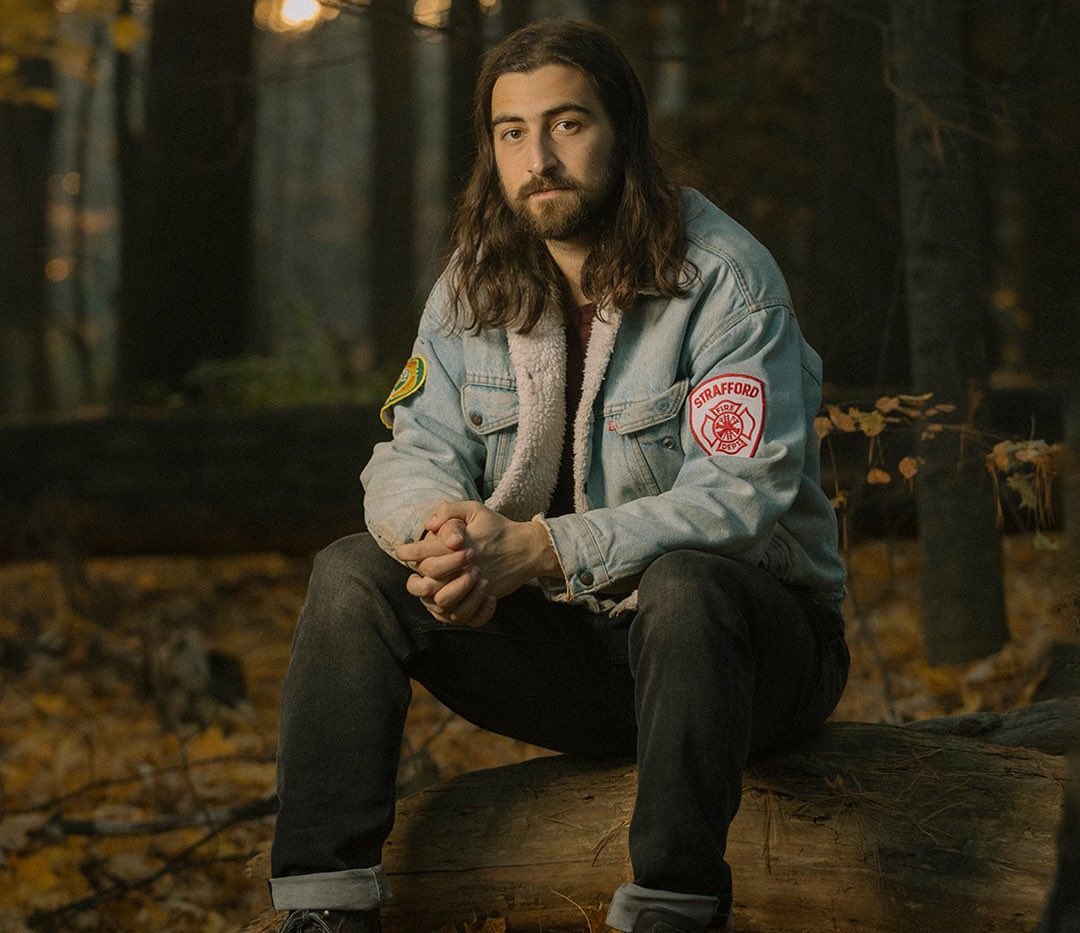
Spirited, vulnerable, and emotionally raw, Stick Season is an intimate and expansive triumph: A folk-pop masterpiece from a still very-much evolving singer/songwriter.
Running for nearly a full hour, Stick Season is far and away Noah Kahan’s longest album – and since it’s not a “pop” record, that means it also lacks the constant repetition that comes with that type of songwriting. In short, there’s a lot to listen to, and even more to talk about. To celebrate, Atwood Magazine caught up with our favorite Vermonster to discuss the ins and outs of his epic third album. Read our in-depth Stick Season interview with Noah Kahan below as he opens up about his big folk pivot, his favorite songs and lyrics, and more.
“I hope that anyone who feels stuck in a situation, whether it be a relationship or a hometown, feels heard… I hope people feel comfortable in the moment that they’re in, when they listen to this record,” Kahan shares. “And I also hope they feel transported to a dreary autumn day in New England.”
“I have taken away what I think is the greatest musical joy I’ve ever felt. I feel completely fulfilled creatively right now. I’m so happy and grateful for the people, the many, many people that helped me get to this place and allowed me to do this and make this music, and most importantly my fans for believing in me and sticking by me as I approach this new chapter.”
Noah Kahan is living his best life, and it’s all because he believed in himself.
I hope people who have decided to stick around feel okay with that when they listen to this record, because it’s okay to love where you’re from. It’s okay to be somewhere that you might not wanna be forever, and it’s okay to be in the moment you’re in.
I would leave if only I could find a reason
I’m mean because I grew up in New England
I got dreams, but I can’t make myself believe them
Spend the rest of my life with what could have been
And I will die in the house that I grew up in
I’m homesick, I’m homesick, I’m homesick
– “Homesick,” Noah Kahan
— —
:: catch Noah Kahan on tour ::
:: stream/purchase Stick Season here ::
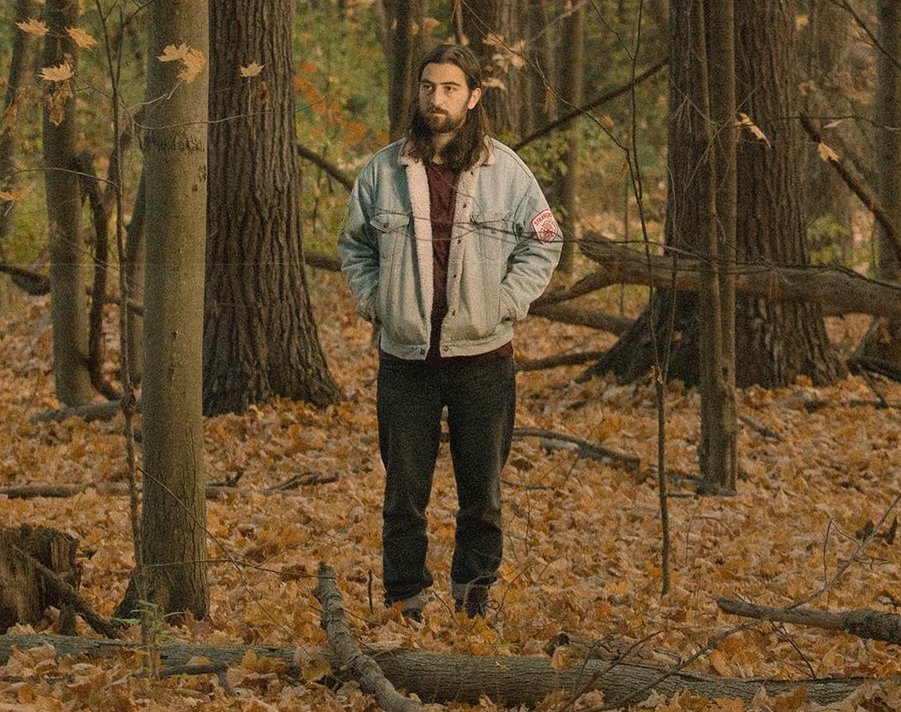
A CONVERSATION WITH NOAH KAHAN
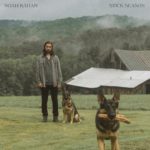
Atwood Magazine: Noah, we haven't spoken like this since we met back in 2019 around your debut album, and I thought it could be fun to start back there. What's your relationship with Busyhead like these days? Does it still resonate with you?
Noah Kahan: It does. I will always love that album and what the experiences that led me to that album are so instrumental just in my life and in my career that when I listen to it, I don’t know, having the perspective of a couple years of experience in the music industry and experience in life has made me appreciate it, but also feel a little bit, maybe a little bit bad for myself in some ways. Like, listening back to some of the things I was struggling with and kind of being brought back to that place after growing a lot is sometimes kind of difficult to think about, that lost, kind of scared kid that made some of those songs and some of the naïveté that was in my life and present in my mind at the time definitely comes back.
But I don’t know, I listen to it and I really still feel like a real sense of pride. So I still love the album, I know it means so much to my fans, so I love playing it and I love seeing people’s experience evolve with it, but it definitely, yeah, it reminds me of a kind of a tough time in my life, and I think that’s okay, it’s kind of nice to be reminded of how much I’ve grown, but I definitely get a tinge of sadness when I listen to some of those tunes. But a lot of that stuff I still am working through and working with, so it’s cool to kind of have it mean different things to me as time passes.
We talked about your Cape Elizabeth EP when it came out in the beginning of the pandemic, and I loved doing that feature on your sophomore album, I Was / I Am together. You described it as a record of acceptance, letting go of self-deprecation and working on yourself. Does all this still hold true a year out?
Noah Kahan: Yeah, definitely. I think I said a lot of those things and maybe it didn’t feel like I had… I didn’t actually have a ton of evidence for. I think that album was grappling with the idea of acceptance, self-acceptance and the idea of working on myself. But I think after the album came out was when I started to do a lot of that actual work and to start kind of doing the things that I said I wanted to do. I know a lot of that record is kind of… I think what’s important in working on yourself and growing is recognizing change and then enacting change. I think that album was recognizing change. In the past couple years, there have been a lot of enacting change through therapy and through healthier practices, and my personal life.
And the way I approach music and the way I approach my job now, I feel like is in a more healthy place. And so I think that album was important in being like, “Okay, I’m saying that I’m gonna do all these things in this record. I’m saying that I’m changing, I’m recognizing growth, and now it’s time to actually do the behind the scenes stuff.” ‘Cause what matters is what you do behind the scenes more so than what you say in your music or what you say you’re going to do.
This brings us to Stick Season, and first off, I can't think of a more definitively Vermont name for an album! To start, can you share a little about the story behind your third record?
Noah Kahan: Yeah. Well, Stick Season is a colloquialism in Vermont and greater New England, but really mostly Vermont about that time of the year that’s coming up really shortly, where it’s between the kind of peak foliage and the first snow, and there’s all the leaves are off the trees and it’s kind of a depressing time of transition. And it’s a term that I felt like was really cool to navigate in the frame of a relationship as well as in the frame of where I grew up in New Hampshire and Vermont, the idea that things are hard and ugly and eventually, the beauty will come, winter will come and spring will come, but there’s that time that you have to get through.
And so it’s a term that’s specific to Vermont and New England that I wanted to make… What I was doing was making a record about Vermont and New England and what it’s like to be in a small town, what that means to how you approach life and relationships, and what that means in terms of your love for it and your disdain for it at the same time. This record came about while I was almost done with my second album, I had started writing these little folk songs just for myself. I’d always grown up writing these little tunes and listening to folk music, and listening to great storytellers, like Paul Simon and the Counting Crows and Cat Stevens.
And I was making these songs for myself and I would kind of use them as an escape from maybe the mundanity, if that’s a word, from the mundane element of what I felt like I was doing before. I’d kinda gotten a little bit stale in my love for songwriting and my love for the music industry, and I was having these little songs be that breath that I needed and that new inspiration that I needed. And as I kept doing that, I started to realize the songs were forming a theme. I had been in Vermont for about a year-and-a-half through the pandemic, and obviously had grown up in Hanover, New Hampshire and Strafford, Vermont, so I was writing about my experiences and re-evaluating my perspective on this place that I’d spent so much of my life.
And the songs kinda started to form this theme. And as I got more serious in writing them, I started to realize that I was making an album, and so it became Stick Season.
These little songs definitely grew in size! Running for basically a full hour, Stick Season is your longest LP by a long shot. It also feels like a transition into more folk forward music...
You're not trying to shine every song down to the tightest 3-minute, radio-friendly version of itself, which I, for one, appreciate. What was your vision once you realized this was becoming an album? How or where did you finally give yourself permission to let this be your next record?
Noah Kahan: I realized that I wasn’t finding happiness or creative fulfillment in trying to be a star and trying to be relevant… These are all projections. No one was ever saying, “Hey, Noah, we want you to be a star. Hey, Noah, be relevant.” But I was putting that pressure on myself my entire life just trying to do what I thought I was supposed to do. And it wasn’t making me happy, frankly, I wasn’t happy. And what made me happy was writing these songs and making this music, and I was like, this is the stuff I’ve been listening to my whole life. I was always scared of doing it, ’cause I felt like I was stuck in this one path or that I was in this path and I couldn’t find my way out of it. So I started to write these songs, opened my mind up to what actually made me happy in music, which is telling stories and speaking about this place I love and have such an interesting relationship with, which is Vermont.
So, it was pretty clear that I could no longer keep doing what I was doing before, and I had this thing that was kinda making me happy and breathing new creativity into my work, and I just approached that with intent and the intent of making an album and whatever happens happens, I have to do what’s gonna make me feel happy again. And so this project was that for me, and it really ended up being something that I can listen to and be really proud of, which is all I care about now is being proud of myself and being proud of what I’m doing, because I spent so much time hating it.
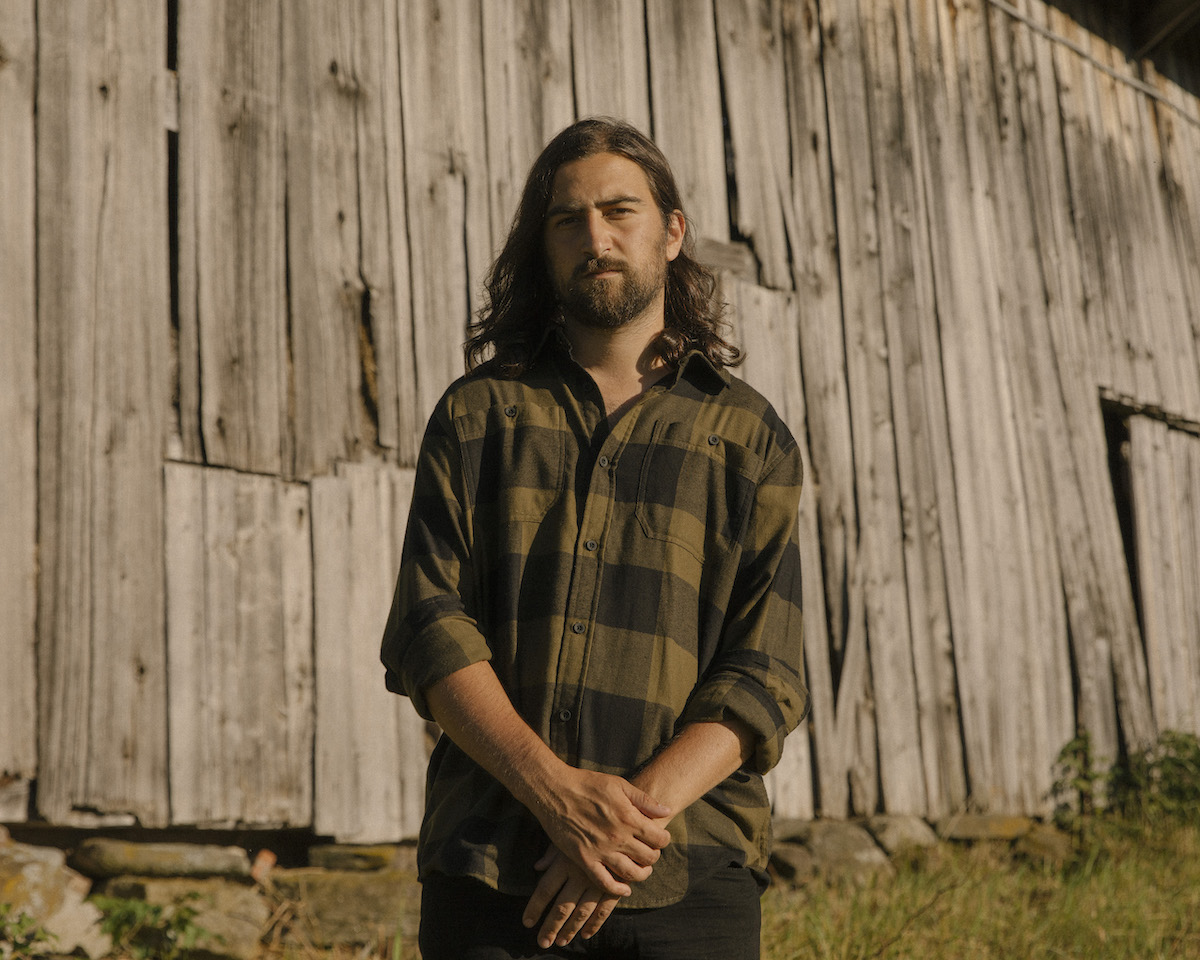
Kick me if I'm using the wrong language here, what was it about “pop” songwriting that was starting to grow stale for you?
Noah Kahan: Yeah. And I still love doing little pop songs and writing and collaborating, and co-writing and making music for other people, and I have no hatred towards pop music, I think I just started to lose the joy of songwriting and trying to go and make a radio song every time I wrote and trying to come up with a concept that was cool and hadn’t been done before, or trying to almost impress the people I was working with more than I was trying to just make something good. And I think there’s just a more industry side to pop, the pop space, that I kind of started to be… I just started to not love it. I didn’t love having to go to some person’s… Go to some writing room and know that some person had 50 other sessions that week with people that were probably gonna have huge songs, and I just always felt intimidated by the process. And again, this is all just my own insecurities about music and my life that were coming out.
But I just started to kind of be focusing so much more on the success of the song than I was about writing the song… It took me a while to realize it. But when I realized it, I was like, I need to change this because it wasn’t sustainable for me. And I’ll probably go back to making pop songs and I’ll still make pop music and, who knows, maybe my next record will be a big pop record. Like I said, I have to do what makes me feel fulfilled and it just wasn’t fulfilling that itch that all songwriters have to make great music.
How would you distinguish or differentiate the style of songwriting on this album to that of your past records?
Noah Kahan: This album was almost entirely written by myself and almost entirely written in Vermont, so I think just by nature of environment, it was a completely different process. I wasn’t in LA being like, looking up on Wikipedia, what other songs the person I was about to go write with had cut, and that wasn’t kind of seeping into my mind and I wasn’t thinking about having to write a single every time, I was kind of just like writing songs.
And I was sitting in my mom’s house and my dad’s house, and I was writing in the environment about, that I was writing about. So that was cool. Like being… The process was more, I feel like more natural. ‘Cause I was making a record about New England in New England, making records about my childhood in the place where I spent a lot of my childhood, so it felt a little more personal and intimate than some of the other stuff I’d done.
And I did miss a lot of the times, like the feeling of having a collaborator there, being like, “Hey, what about this and what about this?” I’ve worked with so many amazing songwriters and other artists and I missed having that kind of sounding board. But it was cool. The loneliness of it was fun and challenging to be like, I am in this myself and I need to determine whether this is good or not. I don’t have that sounding board. That being said, it was nice… I spent a lot of time during the pandemic doing Instagram lives, and I started doing all my TikTok shit. So I had a sounding board in another way, and it was cool. It felt like something that the fans and I were making almost, instead of like me and another artist or another writer. So it was a more personal songwriting experience, for sure.
When I used to write a song, the second I showed somebody, it suddenly changed what the song was to me. Sometimes I would not be able to go back to it because I’d “brought it into the world” already, and I’d have this paralyzing inability to continue working on it. Other times, that gave me more energy to keep going with it. It's cool that you got to share snippets of it along the way, and that it was an interactive collaborative process.
Noah Kahan: Yeah, it’s a balance, you have to find the balance between being excited that people like it and also liking it for your own reasons. It can be really hard for artists on TikTok, and this has happened to me a couple times, like where you release a snippet of something that you, maybe you wrote a verse and a chorus and you put it on TikTok, and either it does really well or a lot of people see it and then you’re like, oh, shoot, I gotta finish it. But now you have this biased perspective, like almost all the songs I write, like I write the whole thing, I’m like, that’s not good at all and whatever. It’s done.
And then I put it on TikTok, it’ll do well and I’m like, oh, it’s great. It’s a finished song. When you put half of a song on and everyone’s telling you it’s really good, it changes kind of that emotional place that you’re in, when you’re writing it. So you have to be really careful about how you extra… What you extrapolate from those opinions and what you extrapolate from the success of a song on social media.
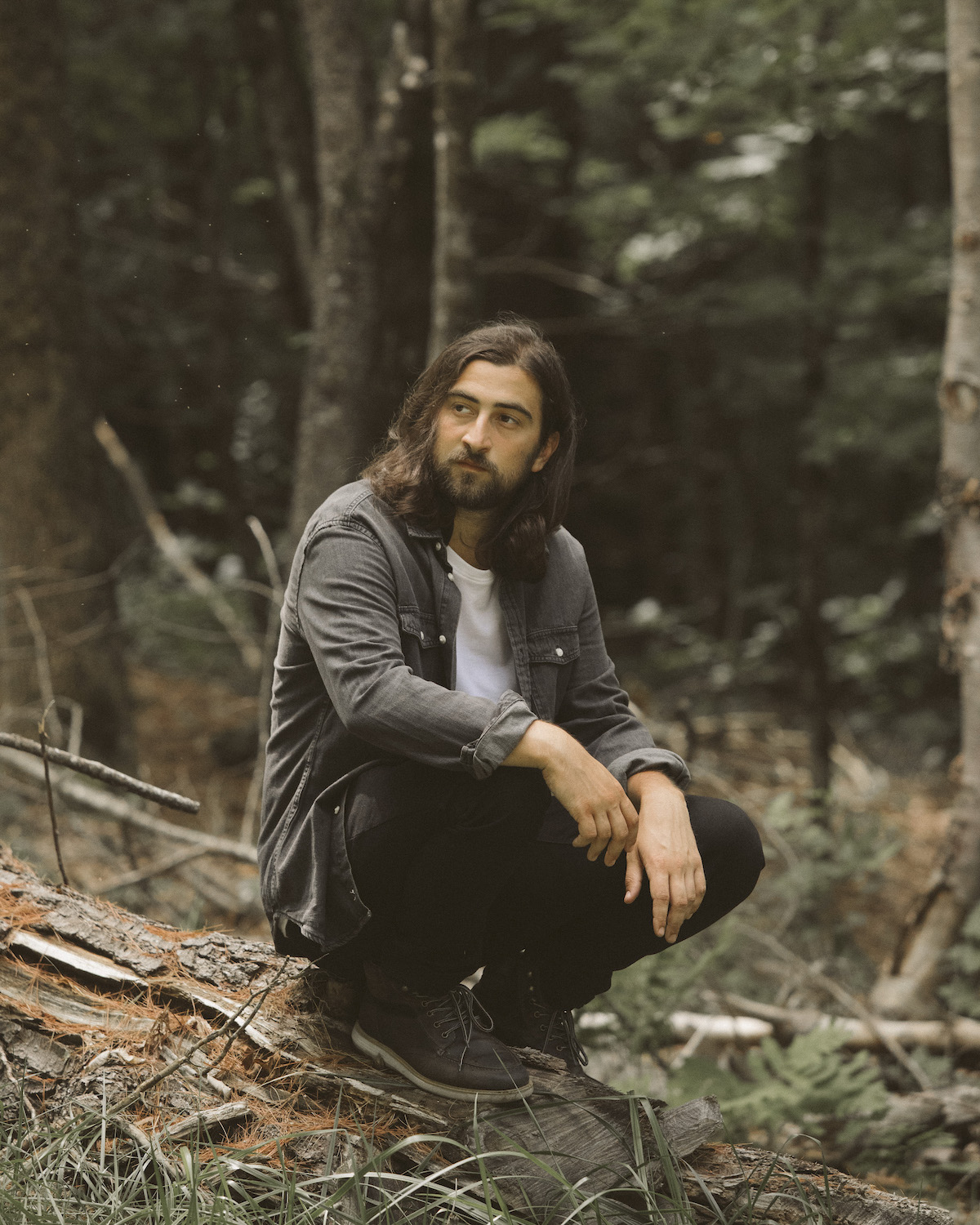
Right. Do you turn a 90-second song into a 3-minute song of the exact same 90 seconds twice? How do you build it?
So, this is a 14-track album. Was it 14 songs written, and those 14 songs made it on the record, or were these 14 out of, say, 50 songs to choose from?
Noah Kahan: There was like 14 songs going into the studio, 14 or 15 songs that we were like, “These are good and let’s look at these.” And then in the studio we actually ended up writing two. So we had to knock two of the ones that we brought in off, and that was really cool. From a creative perspective, to be able to go somewhere with a plan and have just two kind of lightning in a bottle songwriting moments happen in the studio was really fun. There was a lot of songs that I kinda had been working on, and like you said, it’s a lot of times, it’s like 50 to a 100, there’s probably about 30 songs that we looked at for this record. And a lot of… All of them were folky and all of them were more narrative, but there was only 14 or 15 that felt like they fit the puzzle absolutely perfectly.
And they really became clear to us, my team and I, and we chose them really carefully and we didn’t look at TikTok success as much as we did, at how do we tell the story and fulfill this concept. And, the songs that we chose were the right ones. And it wasn’t like a process of being like, alright, which ones are singles and which ones of these sound like they are gonna be a ballad? It was kind of just like, whatever these songs are to fit this concept of what we need to make them. So we went in with the 16, and then ended up recording two in the studio and that ended up being the record. So it wasn’t too hard of a selection process.
This story and this concept being, I take it, your life and relationship with New England and Vermont.
Noah Kahan: Yeah.
So, you called “Stick Season” the most important song of your career. I was wondering if you could talk about that.
Noah Kahan: Yeah, I think it’s the most important song in my career because it represented a positive response and encouragement in doing what made me happy and what fulfilled me as a songwriter, and kind of like was what I always wanted to do. And to see that kind of what I think is a risk of kind of taking a totally different stylistic approach lyrically and sonically, and seeing it have its success was the encouragement that that gave me, was incredibly crucial, I think, to my career. And I’ll look back and be like, thank God. ‘Cause I was heading to a place of just like, I don’t know where to go. And to see the risk pay off has been amazing. And to see it connect with people has been amazing and to be like, hey, the story and the specificity of the lyrics can relate to people on a universal level was really great. And it made me realize that I don’t have to kind of go into every songwriting session, trying to be universal and relatable in every way. I can just write what I’m feeling and it’ll land. So it was really important in that sense.
That's awesome. I gotta tell you, the songs here, they're so much more in the line of like Gregory Alan Isakov and Leif Vollebekk, who are two of my favorite storytellers. And I just love that you could take people on a journey that was so intimate and personal, but equally relatable at the same time. And not have to be a pop song – not have to end two-and-a-half minutes later.
Noah Kahan: Thank you so much. I mean, Gregory Alan Isakov, I think we must have talked about it at least once in one of our conversations, is just such an inspiration to me. And I truly felt like when I listened to his music, when in my childhood and still to this day, I’m just transported to like some like 1910s countryside. And I was like, that is so cool that I still relate to some of these songs and the stories about relationships and self-reflection and… That was, he was such an important part of this album to me, like really, truly important because he represented everything I wanted to achieve, kind of in a different paradigm, but in the same sense, like let’s transport people somewhere, let’s tell them a story and let’s have them have a chance to go visit Vermont [chuckle] when they listen to this music. And that’s what I wanted to do. And that’s what he did for me so much growing up. So I appreciate that comparison. He was a massive part of this record. Massive.
When I kind of close my eyes with this record, I'm imagining a wet and dreary Vermont in mid-October; you're on one side, Bernie's on the other, and everyone's going, “Welcome to our collective misery. Have some fun.”
Noah Kahan: Two Subaru Outbacks flanking us. [laughs]
They're green, but you know, there's a bit of gray on them to show that time has passed.
Noah Kahan: Yeah. There’s dirt all over the tires. Yeah. You know it.
What I love about this record is that it has tracks like “Strawberry Wine” and “Halloween.” Those songs wouldn't have fit on one of your past LPs, but they work so perfectly in Stick Season, and it truly feels like you allowed yourself to embrace space, quietness and you kind of gave songs their chance to lead you, rather than you leading them.
Noah Kahan: I think that is a reflection of a little bit of the kind of the… I think a little bit of confidence and maybe a little bit of ego death at the same time. I think a lot of times, I approach songs as like an audition, almost. I was like, I wanna write the dopest bar here. I want this to be all me, me, me, like, look how good of a lyricist I am. Look how good of a songwriter I am. And these songs, I really wanted them to be, I wanted the attention to be paid to the story and to the, like you said, the space and the instrumentation leading the story instead of kind of having that panic of like, oh, I need to write these dank lyrics or else no one’s gonna care.
And I was happy about that, ’cause I think it represented a little bit of a hurdle that I jumped and just being like, okay. People are smart enough and people are knowledgeable enough to listen to these songs and hear what I’m trying to say, instead of me feeling like I need to be out in front the entire time. And like you said, not letting… Not making me lead the songs and letting the songs lead you. I think relying on lyrics and relying on big moments vocally have their place. And there are some places for that on the record, but I wanted these songs to really make… Yeah, really wanted them to tell a story and not have to have me being the one forcing it down people’s throats. I wanted the songs to be what they are.
It's kind of fun; sometimes when I'm reviewing another record, I'm like, “So here's what this is about from the artist's perspective.” I don't need to do that this time around. I can just go listen to the lyrics and I know, “Noah will tell me himself.” There's a lot, but what I can ask you is more about the process; what was one of the hardest songs for you to write this go around?
Noah Kahan: There were a couple songs that were hard for different reasons, like just from a songwriting perspective, the song “Come Over” was really hard. It was like what we just talked about. I just wrote a verse and a chorus about the way I felt when I was younger, just being embarrassed about my house or being embarrassed about my family or about myself, and still trying to be vulnerable and ask people to come hang out with me. And it’s not just something I experienced to do with my family and my friends, and people all over the world experience that kind of like awkward insecurity of being a young person and wanting to make friends, but having to open yourself up to your life, open them, like show them your life and opening the doors to somebody that might judge you.
And I wrote the verse and the chorus and put it on TikTok, and it didn’t like explode, but it did well. And I was like, I kept listening, being like, I really like this. And my manager really liked it, I was like, alright, now we just gotta do a verse and another verse, and maybe that come over part should be the bridge instead of the chorus. And so I, for like hours and hours every day, I would sit and try to finish the song and I could never be satisfied in the way I was with the first verse. And so, it wasn’t until we were in the studio recording the first verse that I wrote the second verse, while they were comping my vocal. So it was like a real last minute buzzer beater of a song, and it took a long time to write. So that was, from a songwriting perspective, probably the hardest one.
And emotionally, I think the hardest one to write was “Orange Juice,” just because it required me to look at a lot of my relationships, my friendships, my relationship with alcohol, my relationship with trauma and really think about where my responsibility lies and how those things either deteriorated or how my relationship with alcohol affected my life. And it was hard to kinda listen to that song and be like, man, it just makes me sad to think about friendships that haven’t worked out, in my life and in my family’s life, the way that we, and friends have struggled with alcohol, and the idea that you can go through something really traumatic with somebody and have it not bring you closer together, instead pull you farther apart. So it was hard to write that song and sing that song, and have to know that it was a really personal… There was a really personal investment for me there, so it was tough to do that one.
It's interesting how that one goes, because it's kind of innocuous at first. My wife doesn't drink, because drinking gave her migraines, and we've had relationships of ours shift dramatically as a result of that. Some folks get dismissive, and others get unnecessarily weird and awkward about it. Your line, “There's orange juice in the kitchen bought for the children, it's yours if you want it. We're just glad you could visit us,” just like… Whew! Spoke to me.
Noah Kahan: Yeah. There’s a condescension and an intent… I think this happens a lot when people quit alcohol. It’s like people feel the need to over-cater to somebody out of an awkwardness about knowing that they have a struggle in their lives. It’s like, “Oh, don’t worry, we have orange juice for you.” It’s like, “I’m an adult, I can do this myself. We can have a relationship that isn’t based around alcohol,” but people feel the need to over-extend themselves to satisfy their own insecurity about your decision not to drink.
I wanted to start the song off with that, because people, it’s usually a good-spirited attempt at making someone feel comfortable, when what it really does is actually alienate them. And so I wanted to say that. And I still drink, but I am reevaluating my relationship with alcohol very seriously this year. it’s something that I wanted to explore.
This is your story, is what you're sort of saying?
Noah Kahan: Yeah. In a lot of ways. I think it’s my story. It’s the story of my family, a couple friends of mine, and it’s few different stories kind of coalescing into one. I think my relationships with friends that haven’t worked out and my relationships with trauma and my past, and how that kind of all coincides when you go and see somebody again for the first time in a long time. So it’s definitely very much extrapolated from experiences in my life.
You're so deeply embedded in that story; there's so much going on and I love it. I wrote down a couple of my favorite lyrics from the album, and I'd like share them with you.
Noah Kahan: Please.
From “Come Over”: “Someday I'm gonna be somebody people want.”
Noah Kahan: Yeah. Ouchy.
From “New Perspective”: “Paper bags drift wherever the wind blows, and mine's full of receipts.”
From “Strawberry Wine”: “If I could lose you I would. We buried your bones in plywood. I said love is fast asleep on a dirt road with your head on my shoulder.”
From “Halloween”: “It's not Halloween, but the ghost you dressed up as sure knows how to haunt.” That's one of the most emo lines I've ever heard. Also, “It's an ode to the hole that I've found myself stuck in, a song for the grave that I've dug.”
And from “Homesick”: “I got dreams, but I can't make myself believe them, spend the rest of my life with what could have been.”
You’ve got a lot of little gems on this record. What are some of your favorites?
Noah Kahan: Yeah, some of those are my favorites too… I love that, and you’re asking me, so I’m telling you, I usually wouldn’t talk about my favorite lines, but this record is something I’m really proud of and some of the lyrics I’m really proud of, and I love that line in “New Perspective,” that “paper bags drift wherever the wind blows, but mine’s full of receipts.” It’s just such a kind of petty metaphor, but I think it’s so perfect for that moment of the song. It’s such an indictment of what you think you are. It’s like, we are both paper bags kind of just drifting in the world, but I have all this baggage and it weighs me down, and I can’t even do what a paper bag would do, which is just float around.
And I love the line, “Liberal rednecks get drunk in a dirt road, attention deficit kids in their gym clothes.” ‘Cause it just reminds me a lot of my older brother who would just walk around our house with these big Adam Sandler AND1 basketball shorts on with no shirt on, just like, see this super ADHD guy all over the place, and it just really reminded me of where I grew up in my family. So I love that line.
And I love the line from “Come Over,” “And the Dow Jones keeps falling. But I promise you, darling. With the view in the morning, you will never look back.” Just this idea that beauty and elegance doesn’t come from wealth. And it doesn’t come from being rich or having a huge house; it comes from the simple things, like a beautiful view, the way the sunlight hits the roof in the morning time. Those make a tiny house look just as beautiful as a mansion, so I liked that line.
I like the line in “Homesick,” “The mother*s here still don’t know they caught the Boston bombers.” I just think it’s funny; to me, people are like, “What does that line mean?” and I say that it’s basically like, in a small community, it’s such a bubble that literally information moves slower to you. People don’t know that things are happening in the world because they’re so engrossed in their tiny little microcosm of society that they live in, in a small town. And I like that line. That song is definitely the most negative portrayal of a small town, but I wanted there to be individuality and a sense of love toward the negative in that too, and I like that line because I think it gets it across.
I really like the line in “Stick Season“: “I’ll dream each night of some version of you, that I might not have but did not lose.” I think I was proud of that. I wrote it really quickly and I look back, that was a pretty darn good one. And then I like, “Spent my savings at a Lulu and now I’m suffering in style,” just ’cause I… [laughs] A long time ago, I stopped taking my medication and I went through like a major, I don’t wanna say psychotic break, but it really felt like that. I went and I got a haircut that was horrible and I thought it looked really cool. And I walked 10 miles around Los Angeles, just manic and crazy, and I was just thinking about how the freedom of going completely insane made me feel and what it made me do. I was thinking about those purchases and the decisions I made that night. And I hadn’t actually bought Lulu pants, but I was just thinking it was something that could be funny and relatable to someone who was going crazy. So, yeah, those are some of my favorite lines. I have a few others, but I don’t have ’em off the top of my head.
Honestly, I'm so impressed that you just were able to list them off one by one by one. I know some artists who need to go into their text app to recall the lyrics!
Noah Kahan: I know, yeah, it’s kind of embarrassing how quickly I had this lined up.
When I first started listening to this album, I was like, “Oh, it’s a breakup album, there's some tender hearts getting rebuilt here.” But the more I listen to it, I caught onto this theme of home and belonging, and growing up and looking back at your past and figuring out yourself. This isn't a breakup album. This isn't an album all about love, or not about that kind of love. Are you excited to be living in Massachusetts and growing your roots deeper in New England?
Noah Kahan: I am. I think sometimes I worry like, “Oh, man, I really have pigeonholed myself as a New England man.” But there’s a real draw to this place that I have never been able to escape. Wherever I go, I’m always coming back home and I’m always like, why am I coming back home? And I just don’t know. And I think until I made the decision to live in Boston and live here, I didn’t realize like, this is just where I feel like I belong. I feel safe here. I feel like, I just feel understood in New England, I don’t know why, and I wonder, I love being… I value my family and my home so much, that I need to be close to it. And I kind of like the separation I get from the music industry a little bit.
And I really don’t mean to be the guy shooting on the music industry, because I think it’s a great place for a lot of reasons, it’s filled with a bunch of wonderful people, and I lived in New York, I lived in Nashville, I made wonderful friends, but I just never truly felt like I was one of the people that would live in LA or be hanging out with a bunch of other music people. Just something about it never felt right to me. And so I like the little separation I get where I can still be a part of it and still do my thing, but not be in it.
I think being in it was one of the reasons I started to kind of feel I was comparing myself all the time or I was striving to be somebody I wasn’t, because I wanted to be what the people around me were. And I’m not strong enough to not fall into that if I’m living somewhere. So being in Boston kind of forces a separation from that. And I’m able to take little trips into LA and New York and Nashville, and feel like a foreigner instead of somebody trying to fit in.
Yeah. And you can really own that line: “You would leave if you could only find a reason.”
Noah Kahan: Literally. Yeah. This is all… It’s all true shit there, man. I can’t get out of this place. I wish I could. [laughs]
So is Stick Season for you a reintroduction, a rebirth, or something else entirely?
Noah Kahan: I think in some ways, I feel like it’s a reintroduction. I think people… I have fans that have known me forever and have listened to my music forever, but I think there’s gonna be some people that are hearing the music and not connecting it to my older music, which I really like, ’cause I like the idea of being able to grow and evolve. And for me creatively, it’s absolutely a rebirth, because it’s given me… Like record labels and managers and people in the industry, they need data, they need to see this works, this is cool. And seeing a little bit of success with Stick Season has given me a lot of leeway to continue down this path. So for me, I feel this creative freedom that I’ve just been granted by people. That’s really exciting for me, ’cause it allows me to make music I love.
There’s a track record of relative, so far, success, that will allow them to continue to give me the faith and belief, and financial belief in making this kind of music. So it does feel like a rebirth in my career. And I don’t think I’ve gone through a period of complete tragedy, having to start from the ground up, but I was going down a road that I don’t think was gonna lead to a lot of happiness. And so, I’m really pumped to be able to have the chance to kind of refine myself musically.
I'm really happy for you. We've talked about a lot of different songs and a lot of different lyrics. Are there any songs that we haven't mentioned yet that you would like to highlight? Or any songs that you specifically hope listeners tune into when they hear this album?
Noah Kahan: I remembered all the lyrics, but now I can’t remember all the songs… My favorite song (I think) is, “The View Between Villages.” I was really proud of the writing process in that one, I wanted it to feel the song is about like this path between South Strafford and Strafford, where it’s just big valley and it’s so beautiful. And no matter what is going on in my life, whenever I drive on that path, I feel so happy. And then I start to get off of it and I start to get over the bridge before Alger Brook Road.
And I start to kind of realize I’m getting closer to home in this place with all this baggage and these memories. And I start to kind of feel this anxiety kind of coming back in, I’m like, I’m about to be home and I’m no longer on the road between the villages, which made me feel so happiness. I wanted to write a song that sonically and lyrically felt like that, where it’s like, it’s this peaceful first two minutes of just there’s peace on earth, I’m happy, or I’m looking at all the little bugs crawling out of their homes and I’m just peaceful for a second.
And then I get over this bridge and the music starts to lift and the banjo and the guitar and the drums kick in and this anxiety builds. And by the end of the song, I’m pulling back into the view and it’s peaceful again. And there’s this organ finishing it off and I wanted to have that last section represent like the idea of peace. And so I was really happy about being able to write a song that not only lyrically told a story, but musically told a story.
I think one of my biggest creative insecurities is my musicianship. I’m not a great guitar player. I never have a great vision about how the music part should sound. So I was really proud of being able to kind of start to try to develop vision musically. And I was happy to be able to tell that story musically. So I love that song. It’s really the only other one I wanted to highlight, ’cause I think it’s cool, and it’s one of my favorites.
What song or songs are you most excited to bring to life on tour?
Noah Kahan: “Homesick” is gonna be fun. It’s the first song I have with like a real guitar solo in it, so I’m excited to be able to have that moment. I go… One of my favorite bands is Mt. Joy. I see them all the time. And I just see them ripping on stage, I’m like, that just looks so fun and I don’t have any… There’s so many lyrics in my songs, there’s just no time to do that. And I was very intentional about being like, I want a moment live where I can just rip. So that was cool. And I’m excited for that one. I’m excited… I’ve played “Stick Season” before live many times, but I’m excited with the kind of the newfound audience for it. I’m excited to play that live and see people’s reaction to that song.
As you can tell, the way I’m talking about it, I’m really excited about these songs, I’m proud of it and I’m trying not to care, but I’m really hoping that people like them so I can like play them live and have that be a fun thing too, and have it kind come full circle that way. So I’m excited just to see what people think about the tunes and how audiences react to them live.
I recognize that they may not make the first cuts, but I really hope that I can one day hear “Halloween” or “Strawberry Wine” – those softer songs… I'm also excited to see how you're going to blend in the material together.
Noah Kahan: We’ve had a lot of conversation in the past few days about how we’re gonna mix them in and what the show is gonna be like, ’cause you know how it is when you have two different genres… I wanna say, it’s not completely different, when you have pop folk and then more folk, folk, you have to be really careful about how you introduce each song and how you kind of interlace the songs that might be more poppy with the ones that are more folky. And yeah, it’s been a real process. I’m excited to see how people react to the decisions there.
Songs like “Halloween” and “Strawberry Wine,” I mean, as you said, are really hard to do in a live setting, just to justify playing these like four-and-a-half minute songs, but there’ll definitely be times when we do those ones. And I wanna do some kind of acoustic thing – I’ll be sure to invite you out to that when we do it.
Let's close on a high. What do you hope listeners take away from Stick Season, and what have you taken away from creating it and now putting it out?
Noah Kahan: I hope that someone listening to this record, whether they live in a small town in Vermont or if they live in a city in the West Coast, or wherever, I hope that people are transported somewhere new and I hope that they are able to extrapolate the themes and apply ’em to their own lives. And I hope that anyone who feels stuck in a situation, whether it be a relationship or a hometown, feels heard. And I hope people who have decided to stick around, whether it’s for themselves, whether it’s for a family member, whether it’s for a relationship or just because they wanted to, feels okay with that when they listen to this record. Because it’s okay to love where you’re from. It’s okay to be somewhere that you might not wanna be forever. And it’s okay to be in the moment you’re in.
I hope people feel comfortable in the moment that they’re in, when they listen to this record. And I also hope they feel transported to a dreary autumn day in New England. And I have taken away what I think is the greatest musical joy I’ve ever felt. I feel completely fulfilled creatively right now. I’m so happy and I’m just honored and grateful for the people, the many many people that helped me get to this place and allowed me to do this and make this music, and that’s from the label to my management, to my parents, to my girlfriend, and to most importantly my fans for believing in me and sticking by me, as I approach this new chapter.

Congratulations, it’s all well deserved! Last time we spoke, my final question for you was, “Who are you listening to these days?” and you told me Mt. Joy. In the spirit of paying it forward today, who are some artists you recommend our readers check out?
Noah Kahan: Okay, I’m just on my Spotify right now. First and foremost, Jack Van Cleaf, his song “Rattlesnake” is out of this world, just amazing writing. It reminds me of the thing I love the most about Gregory Alan Isakov and the lyrics I love the most about Phoebe Bridgers. I just think they’re… I think that song is awesome. I’m just going through here. There’s a wonderful song by an artist called Famy, called “Ava” and it’s kind of not my typical type of music, but it’s something so epic and it’s like the best like hype pump-up song. It just feels so epic and like Icelandic. I listened to it before I did Red Rocks in the airport, and I truly think it affected the quality of my performance in a really good way. Like it just hypes me up so much, and I’m gonna go give you one more.
Genevieve Stokes, “Habits,” beautiful song. She’s amazing. She came on the road with us last year. I love what she’s doing. It reminds me of what I love about Patrick Watson and this just ethereal, spooky… I have a playlist called Spooky Folk and she’s all over it. So Genevieve Stokes is great as well, I recommend everybody check her out.
Noah, this was so much fun. It's great catching up as always. Congrats on this record – it's phenomenal, and I'm so excited to see where you go from here.
Noah Kahan: Yeah, thank you so much, Mitch! As always, I appreciate it.
— —
:: catch Noah Kahan on tour ::
:: stream/purchase Stick Season here ::
— — — —

Connect to Noah Kahan on
Facebook, Twitter, Instagram
Discover new music on Atwood Magazine
© Patrick McCormack
:: Stream Noah Kahan ::

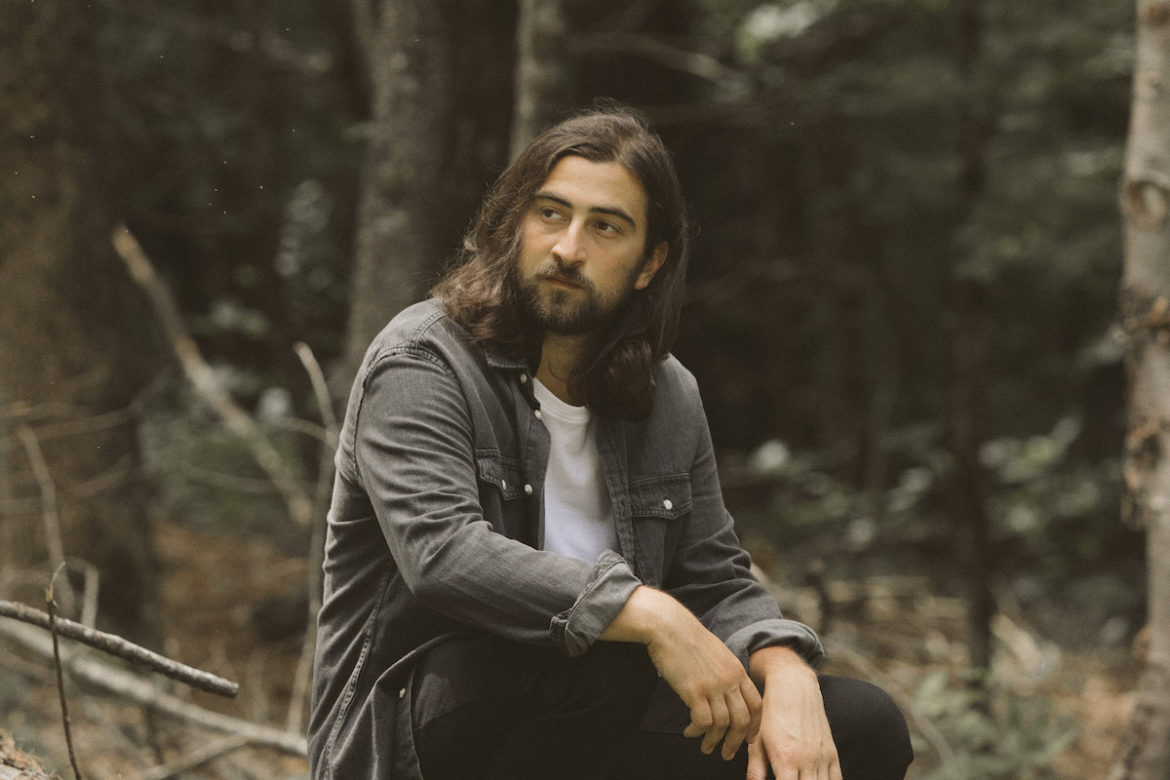
 © Patrick McCormack
© Patrick McCormack